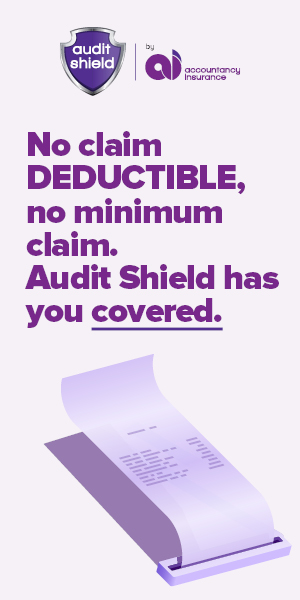Case Commentary: Onex Corporation v. Canada, 2024 FC

Section 1247, subsections 220(2.1) and 220(3), of the Income Tax Act can grant relief from tax reassessment and filing requirements, says David J Rotfleisch
 |
David J Rotfleisch, CPA, JD is the founding tax lawyer of Taxpage.com and Rotfleisch & Samulovitch P.C., a Toronto-based boutique tax law corporate law firm. |
Introduction
In August 2024, the Federal Court delivered its judgment on Onex Corporation v. Canada, 2024 FC 1247, setting aside the decision of the Canada Revenue Agency, which refused the taxpayer's request for relief under subsections 220(2.1) and 220(3) of the Income Tax Act and remitting the matter back to the CRA for reconsideration. This case affirms the remedial nature of subsections 220(2.1) and 220(3) of the ITA.
Prior to 2014, Onex put in place a complex structure to receive tax-free dividends from a foreign affiliate. In 2014, the Parliament enacted the Economic Action Plan 2014 Act (Bill C-43) that amended the foreign accrual property income ("FAPI") regime with respect to certain business structures such as the one set up by Onex. Bill C-43 applies to taxation years after July 2013, unless a taxpayer elects to have the bill taking effect over its tax returns from January 1, 2010.
Onex believed that its business structure already allowed it to achieve the purpose under the amended FAPI regime in Bill C-43, and thus, an election under Bill C-43 would be redundant. As a result, it chose not to file the election. However, the CRA reassessed Onex's 2012 and 2013 taxation years, resulting in an additional $200 million in taxable income.
It was not contested that had Onex filed an election under Bill C-43, the reassessment would not have happened. To correct the issue, Onex requested the CRA to waive Onex's filing of the election under subsection 220(2.1), to which the CRA refused. Onex then requested the CRA to extend the time for Onex to file the election under subsection 220(3), which the CRA also refused.
Subsections 220(2.1) and 220(3) of the ITA Have a Remedial Nature
Subsection 220(2.1) of the ITA gives the CRA the discretion to waive the requirement in the ITA to file a prescribed form, receipt or document or to provide prescribed information. Subsection 220(3) gives the CRA the discretion to extend the time to submit a return under the ITA. The FC held that the CRA failed to consider the remedial nature of these two subsections.
The FC looked into the legislative intent of section 220 of the ITA. Section 220 was adopted by the Parliament as part of a "Fairness Package" to make the tax system simpler, easier, and fairer. The Federal Court Appeal ("FCA") in another case has suggested that the "Fairness Package" has the effect of blunting the harsh consequences of some provisions of the ITA.
Regarding subsection 220(2.1), the Department of Justice, acting for CRA, argued that the subsection allows the CRA to waive the filing requirement provided in the ITA, whereas the election in dispute was not in the ITA. The FC dismissed this argument, drawing from subsection 42(3) of the Interpretation Act which provides that an amending enactment "shall be construed as part of the enactment that it amends." Therefore, the filing requirement under Bill C-43 must be construed as part of the ITA.
Regarding subsection 220(3), the CRA argued that the subsection allows the CRA to extend the time to file a return whereas the election under Bill C-43 was not a return and not tied to filing of a return. The FC dismissed this argument, holding that while the provision on filing the election is not textually tied to the filing of a return, in practice and in fact the election directly impacts the return and thus is part of the return.
Section 12 of the Interpretation Act Requires a Remedial Interpretation
The FC also considered the relevance of section 12 of the Interpretation Act, where it requires that "every enactment is deemed remedial, and shall be given such fair, large and liberal construction and interpretation as best ensures the attainment of its objects." The FC held that the principle of statutory interpretation requires, when possible, the preference for a remedial interpretation.
The narrow interpretation by the CRA where there was no precedent to support such a strict application of subsections 220(2.1) and 220(3) of the ITA contradicts section 12 of the Interpretation Act.
Application of Subsections 220(2.1) and 220(3) is of the CRA's Discretion, but the CRA Ought to Consider the Circumstances
Despite the holding that subsections 220(2.1) and 220(3) apply to the filing of an election under Bill C-43, the CRA argued that it has the discretion in the application of the subsections. According to the CRA, filing an election under Bill C-43 is not an undue burden and Onex had to accept the consequence of their own failure to file the election.
Even though the FC agreed with the CRA that filing the election does not constitute an undue burden, the CRA ought to consider the circumstances of the taxpayer's action. Onex always had the intention to access to the same result as obtained under Bill C-43 and, in fact, already arranged its business structures for that objective. It then acted quickly to remedy the consequences.
Furthermore, had Onex filed an election under Bill C-43, the reassessment would not have happened. The CRA's refusal to consider the specific circumstance and insistence on a harsh punishment for Onex were not reasonable. Therefore, the decision by the CRA to deny Onex's requests must be set aside, and the matters shall be remitted for reconsideration.
David J Rotfleisch, CPA, JD is the founding tax lawyer of Taxpage.com and Rotfleisch & Samulovitch P.C., a Toronto-based boutique tax law corporate law firm and is a Certified Specialist in Taxation Law who has completed the CICA in-depth tax planning course. He appears regularly in print, radio and TV and blogs extensively.
With over 30 years of experience as both a lawyer and chartered professional accountant, he has helped start-up businesses, cryptocurrency traders, resident and non-resident business owners and corporations with their tax planning, with will and estate planning, voluntary disclosures and tax dispute resolution including tax audit representation and tax litigation. Visit www.Taxpage.com and email David at david@taxpage.com.
Read the original article in full on Taxpage. Author photo courtesy Rotfleisch & Samulovitch P.C. Title image: iStock (Supreme Court of Canada).






(0) Comments